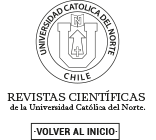Effect of complex decongestive therapy in secondary lymphoedema to surgical treatment and quality of life in women with breast cancer
Keywords:
Lymphedema, Breastcancer, EORTC QLQ-C30, Complex decongestive therapy, Life quality, Modified radical mastectomyAbstract
INTRODUCTION: Lymphedema (LE) is characterized by abnormal increase of interstitial liquid. It can be secondary to breast cancer treatment, affecting patients’ life quality (LQ). OBJECTIVE: To evaluate the effect of complex decongestive therapy (CDT) with manual lymphatic drainage (MLD) in women with breast cancer from secondary LE to modified radical mastectomy (MRM) on the volume of the affected extremity and the perception of LQ. METHOD: Breast cancer women with post-surgery secondary LE treated with 5 sessions of CDT every day. Previous to each session, 7 circumferences of the affected extremity were measured with LE to obtain the volume with Kuhnke formula. Besides, the EORTC QLQ-C30 (life quality) was applied before the CDT and after. Scores of EORTC QLQ-C30 and the average volume of affected extremities by LE before and after the CDT were compared. RESULTS: The average volume of extremities with LE decreased significantly (p<0.0005), 15.5 % after 5 sessions of CDT. Also the perception of LQ and some other symptoms improved significantly with p<0.05. CONCLUSION: CDT in LE decreases the volume of the affected extremity and improves the perception of LQ. MLD is a tool that improves health condition integrally in women with breast cancer and secondary LE to MRM.
Downloads
References
Ahmed, R. L., Prizment, A., Lazovich, D., Schmitz, K. H., & Folsom, A. R. (2008). Lymphedema and quality of life in breast cancer survivors: the Iowa Women’s Health Study. Journal of Clinical Oncology: Official Journal of the American Society of Clinical Oncology, 26(35), 5689–96. https://doi.org/10.1200/JCO.2008.16.4731
Arias-Cuadrado, A., & Álvarez-Vázquez, M. (2008). Rehabilitación del linfedema. In H. C. de Valdeorras (Ed.), Medicina (1st ed., p. 72). Valdeorras: Hospital Comarcal de Valdeorras. Retrieved from http://www.sld.cu/galerias/pdf/sitios/rehabilitacion/tratamiento_del_linfedema.pdf
Beaulac, S. M., McNair, L. a, Scott, T. E., LaMorte, W. W., & Kavanah, M. T. (2002). Lymphedema and quality of life in survivors of early-stage breast cancer. Archives of Surgery, 137, 1253–1257. https://doi.org/10.1001/archsurg.137.11.1253
de la Fuente Sanz, M. M. (2008). Tratamiento fisioterapéutico en el linfedema de miembro superior postmastectomía. Fisioterapia, 30(6), 286–292. https://doi.org/10.1016/j.ft.2008.09.014
Do, J., Jeon, J., & Kim, W. (2017). The effects of bandaging with an additional pad and taping on secondary arm lymphedema in a patient after mastectomy. Journal of Physical Therapy Science, 29(7), 1272–1275. https://doi.org/10.1589/jpts.29.1272
EORTC. (2017). EORTC Quality of Life Department. Retrieved from http://groups.eortc.be/qol/
Erickson, V. S., Pearson, M. L., Ganz, P. a, Adams, J., & Kahn, K. L. (2001). Arm Edema in Breast Cancer Patients. JNCI Journal of the National Cancer Institute, 93(2), 96–111. https://doi.org/10.1093/jnci/93.2.96
Foldi, E., & Foldi, M. (2006). Foldi’s Textbook of Lymphology. Foldi’s Textbook of Lymphology (M Foldi, E Foldi Edn) Munich, germany: Elsevier GmbH.
Gradalski, T., Ochalek, K., & Kurpiewska, J. (2015). Complex Decongestive Lymphatic Therapy with or Without Vodder II Manual Lymph Drainage in More Severe Chronic Postmastectomy Upper Limb Lymphedema: A Randomized Noninferiority Prospective Study. Journal of Pain and Symptom Management, 50(6), 750–757. https://doi.org/10.1016/j.jpainsymman.2015.06.017
Guenter Klose, M. (1998). Lymphedema Bandaging: Practical Bandaging Instructions for Lymphedema Patients and Therapists. In L. & R. G. & Co. (Ed.)(pp. 1–37). Neuwied/Germany.
Hespe, G. E., Nitti, M. D., & Mehrara, B. J. (2015). Pathophysiology of lymphedema. In Lymphedema: Presentation, Diagnosis, and Treatment (pp. 9–18). https://doi.org/10.1007/978-3-319-14493-1_2
Jeanette Ezzo, Eric Manheimer, Margaret L McNeely, Doris M Howell, Robert Weiss, Karin I Johansson, Ting Bao, Linda Bily, Catherine M Tuppo, Anne F Williams, and, & Karadibak, D. (2013). Manual lymphatic drainage for lymphedema following breast cancer treatment. Cochrane Database Syst Rev., (5), 44. https://doi.org/10.1002/14651858.CD003475.pub2.Manual
Kayıran, O., Cruz, C. D. La, Tane, K., & Soran, A. (2017). Lymphedema: From diagnosis to treatment, 51–57. https://doi.org/10.5152/turkjsurg.2017.3870
Kuhnke, E. (1976). Volumbestimmung aus Umfangmessungen. Folia Angiologica, 24, 228–232.
Lawenda, B. D., Mondry, T. E., & Johnstone, P. A. S. (2009). Lymphedema: a primer on the identification and management of a chronic condition in oncologic treatment. CA Cancer J Clin., 59(1), 8–24. https://doi.org/10.3322/caac.20001.Available
Lee, B. B., Andrade, M., Bergan, J., Boccardo, F., Campisi, C., Damstra, R., ... Villavicencio, J. L. (2010). Diagnosis and treatment of primary lymphedema. Consensus document of the International Union of Phlebology (IUP)-2009. International Angiology, 29(5), 454–470.
Maunsell, E., Brisson, J., & Deschênes, L. (1993). Arm problems and psychological distress after surgery for breast cancer. Canadian Journal of Surgery. Journal Canadiende Chirurgie, 36(4), 315–20. Retrieved from http://www.ncbi.nlm.nih.gov/pubmed/8370012
Mortimer, P. S. (1998). The pathophysiology of lymphedema. Cancer, 83(S12B), 2798–2802. https://doi.org/10.1002/(SICI)1097-0142(19981215)83:12B+<2798::AID-CNCR28>3.0.CO;2-E
Petrek, J. A., Senie, R. T., Peters, M., & Peterrosen, P. (2001). Lymphedema in a cohort of breast carcinoma survivors 20 years after diagnosis. Cancer, 92(6), 1368–1377. https://doi.org/10.1002/1097-0142(20010915)92:6<1368::AID-CNCR1459>3.0.CO;2-9
Pinell, X. A., Kirkpatrick, S. H., Hawkins, K., Mondry, T. E., & Johnstone, P. A. S. (2008). Manipulative therapy of secondary lymphedema in the presence of locoregional tumors. Cancer, 112(4), 950–954. https://doi.org/10.1002/cncr.23242
Sprangers, M. A. G. (2002). Quality-of-Life Assessment in Oncology Achievements and Challenges. Acta Oncologica, 41(3), 229–237. Retrieved from http://www.tandfonline.com/doi/pdf/10.1080/02841860260088764
Srur E, Toro P, Leiva M, R. y C. N. (2017). Tratamiento transdisciplinario del linfedema mediante terapia físico-combinada compleja. Análisis de nuestra experiencia, 68(1), 33–37.
Szuba, A., Shin, W. S., Strauss, H. W., & Rockson, S. (2003). The third circulation: radionuclide lymphoscintigraphy in the evaluation of lymphedema. Journal of Nuclear Medicine: Official Publication, Society of Nuclear Medicine, 44(1), 43–57. Retrieved from http://www.ncbi.nlm.nih.gov/pubmed/12515876
Varela Donoso, E., Lanzas Melendo, G., Atín Arratíbel, M. A., & González López-Arza, M. V.(2010). Capítulo I: Generalidades de los linfedemas y de la circulación linfática: patogenia y fisiopatologa. Rehabilitacion, 44(SUPPL. 1), 2–7. https://doi.org/10.1016/j.rh.2010.05.006
Vodder, E. (1966). Die manuelle Lymphdrainage und ihre medizinischen Anwendungsgebiete. Erfahrungsheilkunde(Vol. 16)
Downloads
Published
Issue
Section
License
Los autores continúan como propietarios de sus trabajos, y pueden volver a publicar sus artículos en otro medio sin tener que solicitar autorización, siempre y cuando indiquen que el trabajo fue publicado originariamente en Revista Salud & Sociedad (ISSNe:0718-7475).


_(1).png)





